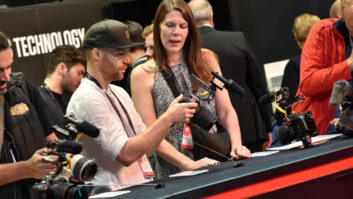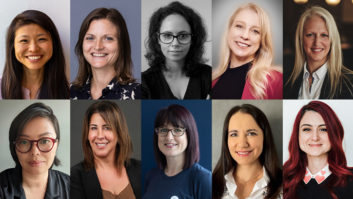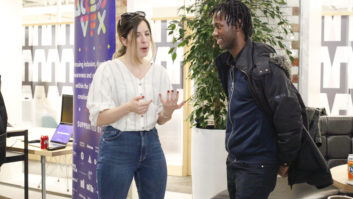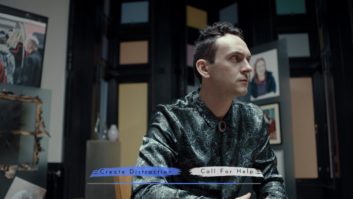In 2021, TVBEurope spoke to the studios plugging the 1.6-1.9 million square foot shortfall in UK production space by building and expanding their facilities to make room for the $6 billion spent on content here each year. But with all eyes on sustainability, how does a company expand its physical footprint without enlarging its carbon footprint?
The Park Royal-based Garden Studios sheds light on the issue, having more than doubled its total space in 2021. “The key to expanding our physical footprint in a sustainable way is that we’ve repurposed and renovated out-of-use industrial buildings in the Park Royal area, rather than built new buildings from the ground-up,” says Marnie Keeling, studio manager at Garden Studios. “This allows us to upgrade the systems in older buildings and lower their existing carbon footprint while putting them to good use for the creative industries.”
This expansion included a 4,800 sq ft virtual production stage, powered by Unreal Engine and Mo-Sys technology. “Virtual production is the future of film production,” states Keeling, “not just for its clear advantages in terms of sustainability, but also because it revolutionises and streamlines the entire production process.” As a proof of concept, Garden Studios used the studio to shoot the UK’s first carbon neutral film, emitting less than one tonne of carbon; 120 times less than if it had been shot traditionally.
Due to the benefits of eliminating staff travel and equipment transportation from budgets, workflows and carbon footprints, virtual production capabilities are fast becoming an essential part of studio operations. In May last year, dock10 in Salford’s MediaCityUK installed virtual production technology in all of its studios. “The creative possibilities of virtual studios are literally endless,” explains dock10 COO Andrew Culley, “and they also support more sustainable productions by reducing the need to build large sets with all the extra transportation and storage they require.”
Culley cites quiz programmes as an example of productions traditionally associated with regular building work, when the show’s look would have to be periodically refreshed using physical sets and backgrounds – now easily achieved by updating the virtual elements, avoiding the physical build and environmental costs. “In some cases, virtual studios even make it possible to reduce the size of studio needed and therefore the production’s power requirements,” he continues. “Productions that have combined smaller actual sets with larger virtual backgrounds have seen great success from this new way of working, and with the technology improving all the time we firmly believe this is the future of sustainable production.”
dock10 confirmed its environmental commitments in November by planting 2,500 trees in Brazil’s Atlantic Forest to mark the company’s 10th anniversary. “The project has created an area of forest the same size as the physical footprint of our building: an enormous 12,500 square metres,” notes Culley. “dock10’s 2,500 trees will help form a wildlife corridor to enable endangered animals, such as the Jaguar and Black Lion Tamarin, to move between areas – helping to ensure the survival of their species.”
Another facility with a unique sustainability story is The Bottle Yard Studios in Bristol, so called because the seven-acre site was previously used as a winery. Built in the 1950s, the buildings were standing vacant in 2010 when they reopened as film and TV studios in partnership with Bristol City Council. “This makes us essentially one enormous re-purposing project,” says Katherine Nash, business operations manager at The Bottle Yard Studios, “and that’s something we are very proud of!”
You can read more of TVBEurope’s look at studio sustainability in our January/February 2022 issue.







